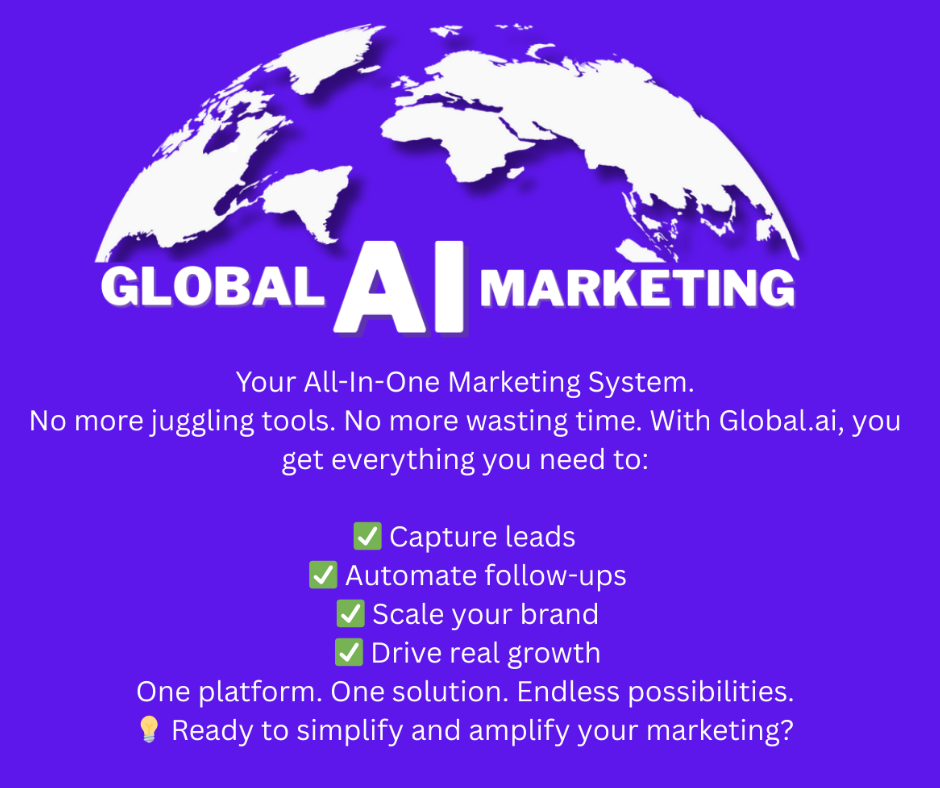Why You Need a Mentor or Coach to Discover Your Passion in Today’s World

Why You Need a Mentor or Coach to Discover Your Passion in Today’s World
In today’s fast-paced, ever-evolving world, the pursuit of personal and professional fulfillment has become more challenging than ever. With a multitude of options available and a constant stream of information bombarding us, finding clarity about our passions can be a daunting task. This is where the guidance of a mentor or coach becomes invaluable. Whether you’re at the beginning of your career, navigating a mid-life transition, or seeking to rekindle your enthusiasm for life, having someone who can provide wisdom, direction, and support can make all the difference.
The Complexities of Modern Life
Life today is vastly different from what it was even a decade ago. The rapid advancements in technology, shifts in the job market, and the increasing pressure to succeed have added layers of complexity to our lives. With so many choices, from career paths to lifestyle options, it’s easy to feel overwhelmed and unsure about which direction to take. This is where the role of a mentor or coach becomes crucial. They help sift through the noise and identify what truly resonates with your core values and interests.
The Power of Perspective
One of the most significant benefits of having a mentor or coach is the fresh perspective they offer. When you’re immersed in your own life, it can be challenging to see the bigger picture. A mentor or coach brings an outsider’s viewpoint, helping you recognize patterns, strengths, and areas for growth that you might not have noticed on your own. They provide insights that can lead to breakthroughs, helping you to see new possibilities and opportunities that align with your passion.
Clarity in a World of Distraction
In a world filled with distractions, finding clarity can seem like an impossible task. Social media, constant notifications, and the pressure to keep up with others can cloud your judgment and make it difficult to focus on what truly matters. A mentor or coach can help you cut through the clutter and identify your true passions. They assist in creating a clear, actionable plan that aligns with your goals and values, ensuring that you’re not just drifting through life but moving with purpose.
The Importance of Setting Goals
Setting goals is a critical step in the journey toward discovering and pursuing your passion. Without clear goals, it’s easy to become directionless and lose motivation. A mentor or coach can help you set specific, measurable, achievable, relevant, and time-bound (SMART) goals that provide a roadmap for your journey. These goals serve as milestones, helping you track your progress and stay motivated as you work toward your passion.
Actionable Strategy:
- Break Down Your Goals: Divide your long-term goals into smaller, manageable tasks. This makes them less overwhelming and easier to achieve.
- Regular Check-ins: Schedule regular check-ins with your mentor or coach to review your progress and adjust your goals as needed.

Accountability and Motivation
One of the key reasons people struggle to pursue their passions is a lack of accountability and motivation. It’s easy to set goals, but following through on them is often a different story. A mentor or coach provides the accountability you need to stay on track. They offer encouragement, push you out of your comfort zone, and hold you accountable for the commitments you’ve made. This support system can be the difference between giving up and pushing through challenges to achieve your dreams.
Actionable Strategy:
- Set Deadlines: Establish deadlines for each of your goals. Deadlines create a sense of urgency and help maintain momentum.
- Celebrate Wins: Acknowledge and celebrate your achievements, no matter how small. This boosts motivation and keeps you focused on your journey.

The Importance of Collaboration
Collaboration is a powerful tool in discovering and pursuing your passion. Working with others who share similar goals and interests can provide new insights, ideas, and support. Collaborating in groups allows you to learn from others’ experiences, gain different perspectives, and build a network of like-minded individuals who can support you on your journey.
Actionable Strategy:
- Join or Form a Group: Seek out or create a mastermind group or community of individuals with similar passions. Regularly meet to share ideas, challenges, and successes.
- Leverage Collective Wisdom: Use the group’s collective wisdom to brainstorm solutions to challenges and identify new opportunities.

The Importance of Planning
Planning is essential for turning your goals and dreams into reality. Without a solid plan, it’s easy to become overwhelmed by the scope of your aspirations. A mentor or coach can help you create a detailed plan that outlines the steps you need to take to achieve your goals. This plan serves as a blueprint, guiding your actions and helping you stay focused on your path.
Actionable Strategy:
- Create a Vision Board: Visualize your goals by creating a vision board. This serves as a constant reminder of your aspirations and helps keep you motivated.
- Develop a Daily Action Plan:
Break down your plan into daily actions. Focus on completing small tasks each day that move you closer to your goals.
Navigating Career Transitions
The modern job market is in a state of constant flux, with industries evolving, new fields emerging, and traditional roles becoming obsolete. For many, this creates uncertainty about their career paths. Whether you’re looking to change careers, start a new business, or advance in your current field, a mentor or coach can provide the guidance you need to navigate these transitions successfully. They offer advice based on experience, help you build the skills necessary for your new path, and provide the confidence you need to take bold steps forward.
Developing Emotional Intelligence
In today’s interconnected world, emotional intelligence (EQ) has become as important as technical skills. Understanding and managing your emotions, as well as empathizing with others, are critical components of personal and professional success. A mentor or coach can help you develop your emotional intelligence, providing tools and techniques to improve self-awareness, communication, and relationship-building. These skills are essential for creating a fulfilling and passion-driven life.
The Role of Faith and Values
For many people, faith and values play a significant role in their lives. However, in the hustle and bustle of modern life, it’s easy to lose sight of these guiding principles. A mentor or coach can help you reconnect with your faith and values, ensuring that your pursuit of passion is aligned with what truly matters to you. They provide a safe space for you to explore your beliefs and integrate them into your personal and professional life, leading to a more authentic and meaningful existence.
Building Confidence and Self-Esteem
One of the most common barriers to pursuing your passion is a lack of confidence and self-esteem. Doubts about your abilities, fear of failure, and a lack of belief in your potential can hold you back from taking the necessary steps to achieve your goals. A mentor or coach helps you overcome these mental blocks by providing encouragement, constructive feedback, and a belief in your potential. They help you build the confidence you need to take risks, embrace challenges, and ultimately succeed in your endeavors.
Actionable Strategy:
- Practice Positive Affirmations: Develop a habit of daily positive affirmations to boost your self-confidence and reinforce your belief in your abilities.
- Seek Feedback:
Regularly seek constructive feedback from your mentor, coach, or peers. Use this feedback to grow and improve.
Expanding Your Network
Another critical benefit of having a mentor or coach is the opportunity to expand your network. Mentors and coaches often have extensive connections in their fields, and they can introduce you to people who can help you on your journey. Whether it’s potential employers, business partners, or like-minded individuals who share your passion, these connections can open doors that would otherwise remain closed. Networking is a powerful tool in today’s world, and having someone who can facilitate these connections is invaluable.
The Importance of Lifelong Learning
In a world that is constantly changing, the ability to adapt and learn new skills is essential. Lifelong learning is no longer just an option; it’s a necessity. A mentor or coach can help you embrace this mindset by encouraging you to seek out new knowledge, skills, and experiences. They guide you in identifying areas where you need to grow and provide resources to help you stay current in your field. This commitment to learning not only enhances your career prospects but also keeps you engaged and passionate about your work.
Overcoming Fear and Resistance
Fear and resistance are natural responses to change and uncertainty. However, they can also be significant obstacles to discovering and pursuing your passion. A mentor or coach helps you confront these fears and resistances, offering strategies to overcome them. They provide a supportive environment where you can take risks, make mistakes, and learn from them without judgment. This support is crucial for breaking through the barriers that hold you back and achieving the clarity and confidence needed to pursue your passion.
Actionable Strategy:
- Identify Your Fears: Take time to identify and acknowledge your fears. Discuss them with your mentor or coach to develop strategies for overcoming them.
- Embrace Failure: View failure as a learning opportunity rather than a setback. Use it as a chance to grow and improve.
Tailored Guidance for Individual Needs
Everyone’s journey is unique, and what works for one person may not work for another. A mentor or coach offers tailored guidance that is specific to your individual needs, goals, and circumstances. They take the time to understand your unique situation, challenges, and aspirations, and they provide personalized advice and strategies that are designed to help you succeed. This customized approach ensures that you’re not following a one-size-fits-all plan but rather a path that is uniquely yours.
The Ripple Effect of Mentorship
The impact of mentorship and coaching extends far beyond the individual. When you have clarity about your passion and the confidence to pursue it, you’re not only improving your own life but also inspiring those around you. Your success can serve as a beacon for others, encouraging them to seek out their passions and pursue their dreams. This ripple effect creates a positive cycle of growth and fulfillment, contributing to a more vibrant and passionate community.

Investing in Your Future
In today’s complex and rapidly changing world, finding and pursuing your passion is more important than ever. It’s not just about achieving career success; it’s about living a life that is fulfilling, meaningful, and aligned with your values. A mentor or coach is an invaluable resource on this journey, providing the guidance, support, and accountability you need to achieve clarity and confidence in your path. Whether you’re just starting out, navigating a transition, or looking to rekindle your enthusiasm for life, investing in mentorship or coaching is an investment in your future. It’s a commitment to discovering and pursuing what truly makes you come alive, leading to a life of passion, purpose, and fulfillment.
This enriched blog section not only emphasizes the importance of mentorship and coaching but also provides actionable strategies that readers can implement immediately. By setting goals, collaborating in groups, planning effectively, and addressing challenges like fear and resistance, readers can take meaningful steps toward discovering and pursuing their passions. We hope this blog can inspire readers to take proactive steps in their journey and help them live a more fulfilling life.




